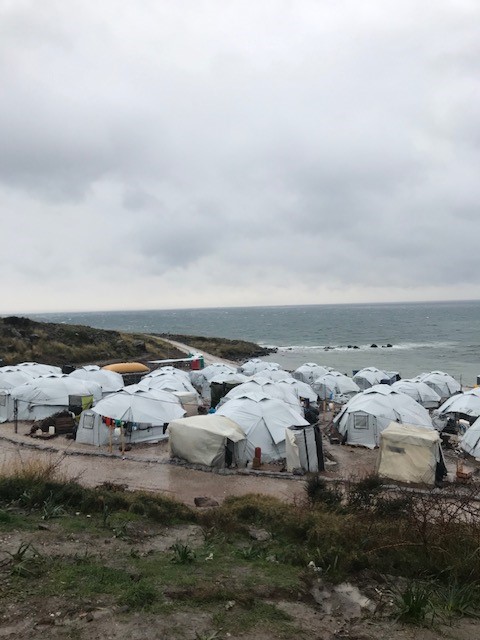
by PartnershipProjects | April 9, 2021
By: Dr. Michaela Fried
Already huge problems due to the pandemic while planning the journey. Are we going to be allowed to fly out? Is there going to be a flight during lockdown? Naturally we have to do a PCR test shortly before take-off. We met a week ago: Helga Longin volunteering for the NGO “Unser Bruck hilft” (Our Bruck helps); Sabine Sommerhuber, who has been “thinking about” the refugee situation in Austria and beyond its borders together with myself and others in the think tank “Die Unerhörten” (The Outrageous) since 2015; she works with Helga, and child psychiatrist Ulla Wurm, a colleague of mine at psychosocial services in Eisenstadt, Burgenland, who spontaneously decides: I’m coming with you! First, an antigen test in my company flat and then a nice gathering with snacks and a unanimous agreement: We will fly out as soon as possible. Sabine takes care of the flights, I will scrounge medication. We want to go because it has become a matter of the heart, and we have to because so many people have generously donated money for our project, their thoughts being “If I give the money to you, I know it will go where it is needed. I can’t do anything else from Austria…” In the meantime, Ulla had contacted Kai at Medical Volunteers International (MVI), a Hamburg-based NGO. This NGO recruits medical professionals who volunteer in regions for a limited period of time to provide medical care to people in crisis areas or emergencies. They welcomed us into their team without any complications.

by PartnershipProjects | February 11, 2021
My 7-year-old son came home the other day and just before bed (his favourite time to initiate a deep and meaningful discussion) he said, “Mum, there is a rule at school and I would like your opinion on it. You may agree with it, you may not but I would like to know what you think?”
He went on to explain that the children in his class receive a punishment where they lose five minutes off their lunch break, if they don’t cross their arms or if they are talking when they line up. He explained that he and his best friend had this punishment issued to them that day and it had upset him. I was gobsmacked. I wasn’t aware I had placed him in a Dickensian school or military training academy. I thought it was a regular school for primary aged children where punitive consequences were widely understood to be unhelpful at best, harmful at worst.
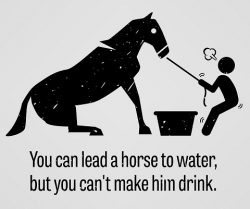
by Jill Lubienski | November 13, 2020
When not to use NVR with a family?
This is a question prompted by noticing the types of referrals received over the years and by questions raised by participants in training contexts. It also seems that this year, the year of Covid19, and driven by rising need and reduced capacity in the various support systems around families, pressures to find rapid relief, a ‘fix’ for a family in need, are increasing. We have also heard of courts requiring families to undertake an NVR intervention as part of a process of returning a child home from Care.
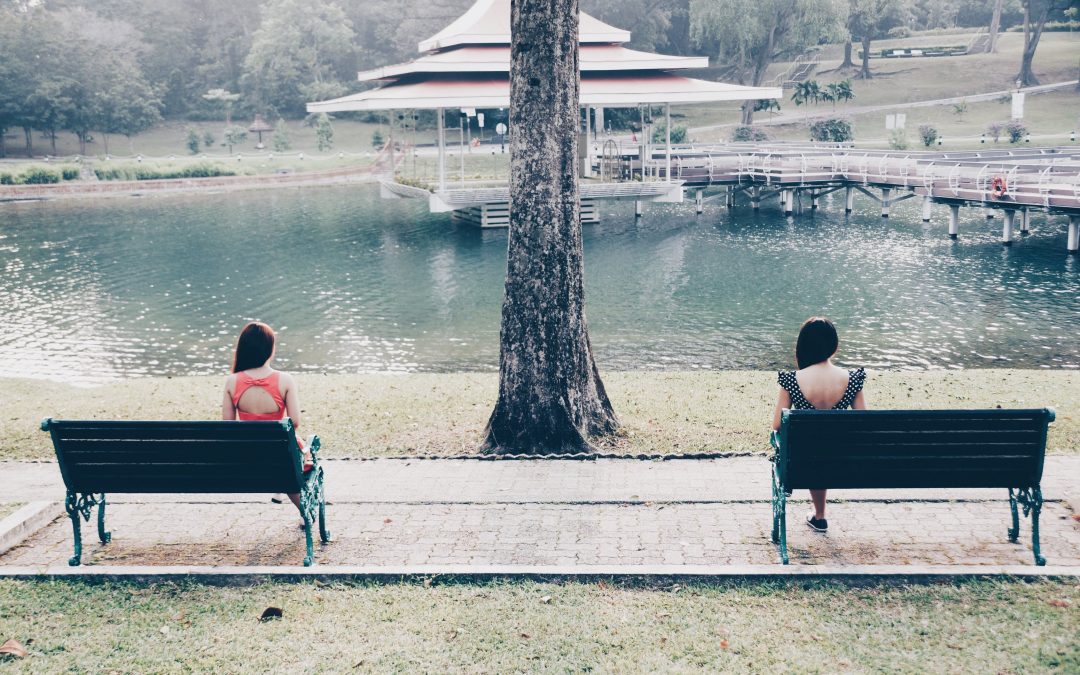
by Willem Beckers | September 7, 2020
In the world of psychotherapy, nothing seems to feel as natural as the theme of empathy. As a professional, you are supposed to act in an empathic way and be able to engage in understanding the other. Depending on the professional, this could translate into a process of emotional resonance, or rather an exploration towards contextual appreciation.
Of course, the challenge of understanding each other is societal as well, and currently feels as urgent as ever. But whether we are talking about the therapy room or our social commitment, we like to think of empathy as a precondition towards encounters with a more warm and connecting character.
That makes me wonder. If sometimes I experience something very different, then what do I call that?

by Rachael Aylmer | August 6, 2020
For an awfully long time now, I have been trying to get my head around launching PartnershipProjects’ very own ‘NVR Podcast’. How I actually “saw” this happening and the actual fact of “making” it happen were two hugely different things! This made me think more about the parents I work with, how they are faced with such challenges, their ability to overcome these challenges with an open mind and how they hold on to hope!!!
As with everything in my life, I made a comparison to my work and using NVR. I imagined I was a parent seeking support for a problem I am faced with and desperately trying to find “THE” solution. There were many options, all sounding roughly the same, all giving similar outcomes, and helping me find the best result and solution for my podcast needs. However, I needed to know that the option I’d choose would be the best option, and I would succeed in launching something that looked and sounded like a podcast. Feeling overwhelmed and alone in my quest to get this problem of mine fixed, I experienced a real sense of stuckness.

by Jill Lubienski | June 22, 2020
How are we doing?
These past few weeks have been such strange, unsettling times for us all. Changes in every area of our lives. Nothing untouched by the creeping effects of a global pandemic. From the global to the local, it’s now with us in our communities; even in tiny, unnoticed, corners of the Welsh valleys, where I work, we have a very unwelcome visitor whose presence we can feel but not see. Its effects lay a trail of devastation.
How do we respond to such circumstances, especially when we are in caring health professions where mental health is our daily business? We are trained to intervene helpfully in situations where young people are experiencing anxiety, depression, trauma, emotional dysregulation and abusive family situations, or where they act in ways which are harmful to others or self-destructive. We follow NICE guidelines and evidence our outcomes for commissioners and we do a good job, in many an underfunded, underresourced setting.
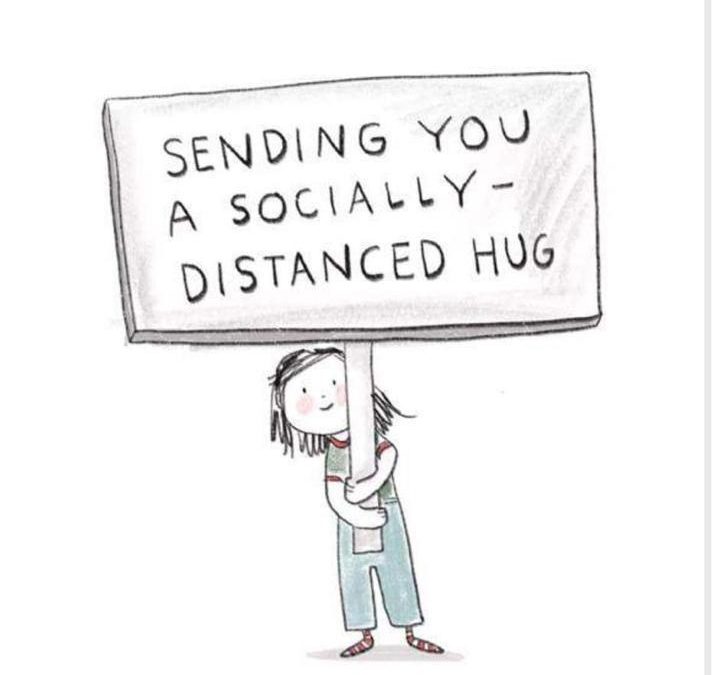
by PartnershipProjects | April 7, 2020
Dear Parent
Welcome to your letter of encouragement. We are your Non Violent Resistance (NVR) coaches and mentors. You may be facing the next few weeks with trepidation, horror or enthusiasm, or a range of other emotions. Having your children home full time, and becoming teacher and guide as well as parent may feel a daunting task, especially with so little preparation time and the need to balance the stresses that we are all facing – work challenges, financial challenges, relational and health challenges.
You are not alone – we are all in this together. We have put together some ideas that we hope might be useful – each paragraph is written by a different person, and we are sure you will have some ideas of your own which will be sparked, so we hope this letter will be a kind of conversation.
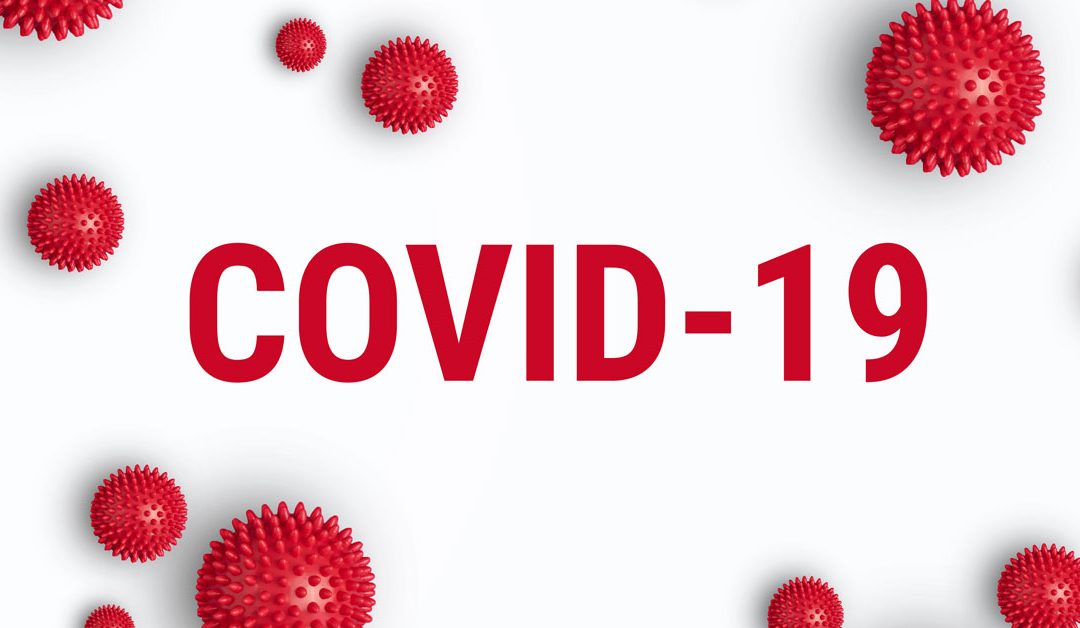
by Jill Lubienski | April 1, 2020
This is a response to requests to continue as ‘normal’ during these times. My idea is that this is old thinking for what is really a new paradigm – those ideas belong to BC times (Before Covid). Normal times as we knew them, are not returning. There will be new times to negotiate, slightly or not so slightly different, and we will need all our resources to manage this.
What if instead, I ventured to say as a professional to parents (and to myself) “Don’t worry about being consistent. Only be consistent in your inconsistency”? I would encourage a growth in fluidity (we have been flooded as a country so perhaps this is the right metaphor!), a plea instead to be flexible, awake and responsive. Routine and things to do are important, but don’t be ruled by this. Respond to the day as it unfolds. Go outside, turn faces to the sun, listen to the birds, pick up leaves, rush around, shout, dance and play hide and seek with the cat. Stick a timetable upside down on the bin lid, paint it in rainbow colours and then throw it away. Call friends and have meetings online, sing to each other, dance in virtual dance halls, connect, connect and then switch off.
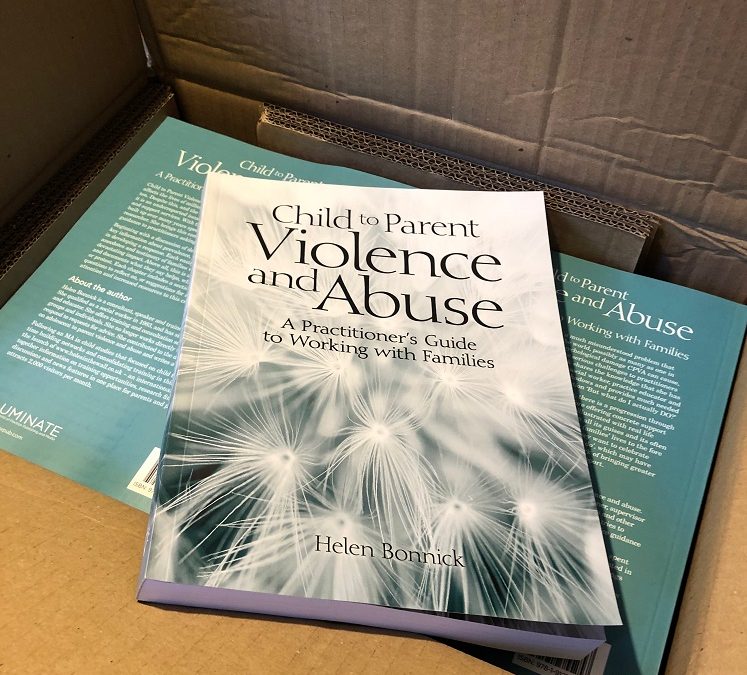
by PartnershipProjects | February 27, 2020
I “fell into” working in the field of child to parent violence (CPV) around fifteen years ago. I had just completed some research around how parents could access help when they experienced abuse; and had done what so many others have apparently done and since reported to me – become obsessed! I felt completely driven to raise awareness of this issue, and of the unmet needs of families: speaking at conferences, lobbying for its inclusion in radio programmes and other media. In 2011 I established my website, Holes In The Wall, which now acts as an international resource hub for practitioners and academics as well as anyone else interested. In 2019 I finally achieved my goal of writing, and having published, a practitioner’s guide for those engaged in work in the field – in response to the frequent requests of both practitioners and parents. Now my husband is looking forward to retirement, I am starting to slow down, but it all still feels so important!
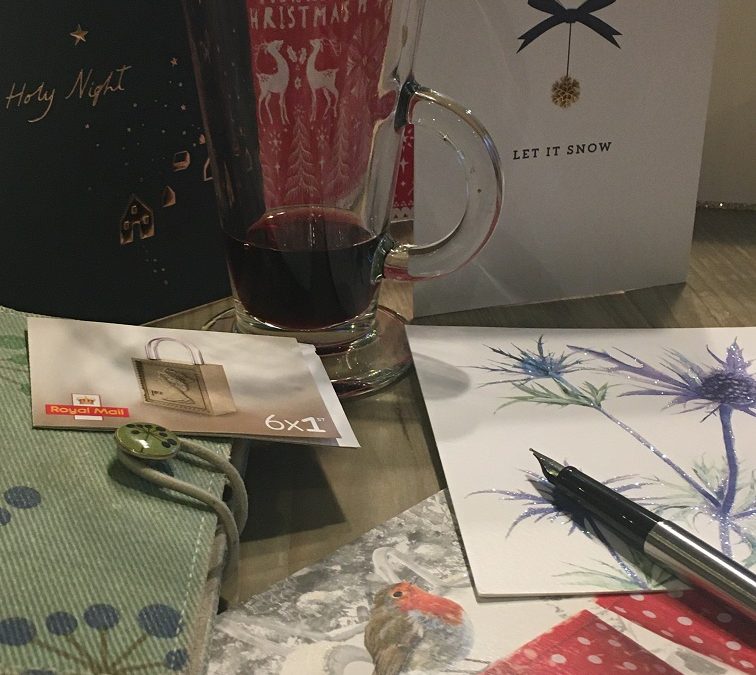
by PartnershipProjects | December 15, 2019
So, in our house it is my job to write the Christmas cards; well, to be fair I write 97% of them, and my partner reluctantly writes the rest because to him this is a chore he could do without. Over the years it has become a bit of a comforting ritual for me. Let me set the scene: it’s the second weekend in December (must be sure to catch the second class post deadline!) with Christmas music playing, mulled wine on the table, maybe a mince pie, my favourite fountain pen, a selection of carefully selected cards and my trusty old address book with all the crossings out and pencil-scribbled addresses – you see, I just don’t trust my loved ones’ contact details to be only in the Cloud.
I have been thinking a lot this week about reconciliation gestures – or, as I prefer to call them, reconnecting gestures – both personally and in my work with parents. To me, these gestures build a foundation for change in relationships: they may look like chocolate bars on a child’s pillow or notes in school bags or slices of cake, but that is just a disguise. In reality, they are bricks which together build a secure wall of love connecting the giver to the receiver, cementing relationships with a trowel full of parental presence.










